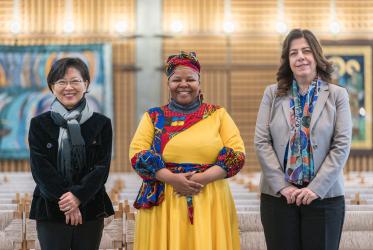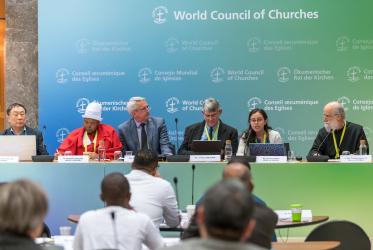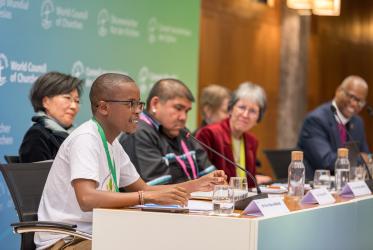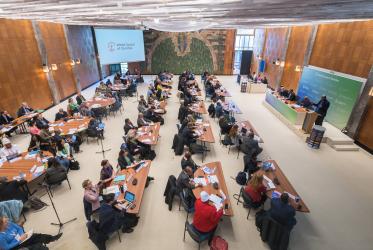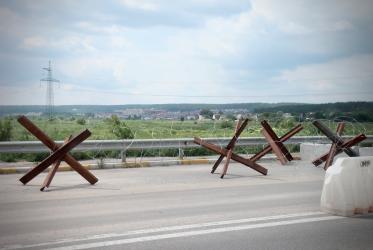Displaying 21 - 40 of 1704
08 March 2024
What can churches do to prevent modern slavery?
22 February 2024
WCC and partners to host seminar in Assisi on Feast of Creation
21 February 2024
WCC to host discussion on humanitarian needs
21 February 2024
WCC submits comments on draft UN “Pact for the Future”
12 February 2024
WCC to share key insights at World Social Forum
09 February 2024
WCC condemns attacks against aid workers in southeast Ukraine
07 February 2024
In Angola, WCC takes human rights approach to obstetric fistula
01 February 2024
Thirsting for peace: Gaza's water woes in the midst of war
31 January 2024
